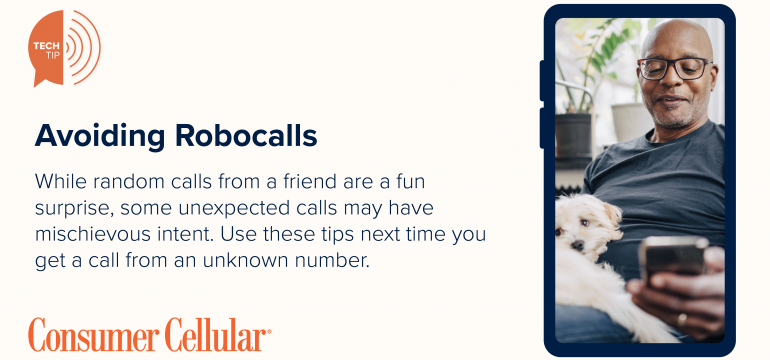While getting a random call from a friend is always a fun surprise, unfortunately, it may very well be a robot caller, or “robocaller”, whose sole function is to spam and/or scam you. Use the following tips next time you get a call from an unknown number; it may end up saving you a lot of trouble.
If you’ve ever answered a phone call seemingly from the number of a family member or close friend, only to find an annoying—and probably fraudulent—robocall on the other end, you’re not alone. According to recent statistics, Americans will receive more than 54 billion robocalls this year! Make sure to use the following tips next time you get a call from an unknown number; it may save you a lot of trouble.
Sadly, not every robocall will be caught in this net since most scammers worth their salt are clever and relentless, always seeking new ways to get through to potential victims. Thankfully, a system aptly named STIR/SHAKEN is implemented as a filtration failsafe system to help phone networks identify scams. STIR/SHAKEN calls traveling through phone networks will have their caller ID “signed” as legitimate by originating carriers and validated by other carriers before reaching consumers. This means that providers will now block a significant number of robocalls before they can get through or, in many cases, will reach your phone tagged as “Scam Likely” on your caller ID.
As always, the best defense against robocalls is to be diligent. The FCC provides these tips to help keep you one step ahead of scammers and spammers:
- Don’t answer calls from unknown numbers. Let them go to voicemail instead.
- If the caller claims to be from a legitimate company or organization, hang up and call them back using a valid number found on their website or on your latest bill if you do business with them.
- If you answer and the caller (often a recording) asks you to press a button to stop receiving calls or asks you to say “yes” in response to a question, just hang up. Scammers often use these tricks to identify their victims.
- If you answer and the caller asks for payment using a gift card, it’s likely a scam. Legitimate organizations like law enforcement will not ask for payment with a gift card.
- Consider registering your telephone numbers in the National Do Not Call Registry. Lawful telemarketers use this list to avoid calling consumers on the list.
It is with high hopes that this information and subsequent tips and tricks will help keep you vigilant and protected against robocallers.
